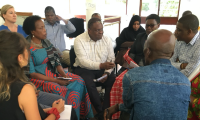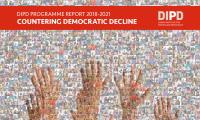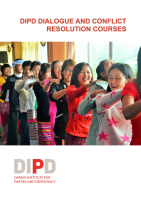Uganda
Uganda held it's first national election in 1962 and have been working on establishing a stable democracy since
In Uganda there is an on-going discussion and movement towards electoral reforms, which could ensure more fair and proportional systems. There are also held regular elections. Nevertheless, the country has been ruled by the same party and president since 1968, which politically prosecutes opposition leaders. Civil society and independent media outlets also experience violence and legal harassment.
The Eastern African region has in recent years been severely affected by climate change, especially amongst the poorest part of the population. The regional responses and policies, as well as international involvement in local climate politics, have been weak or non-existent.
Our work
The Danish political party, The Alternative, was engaged in a partnership with the political network Eastern African Greens Federation (EAGF) to strengthen four national green parties in Kenya, Uganda, Rwanda, and Burundi and ensure that the green agenda is a priority in East African politics.
This project which ran from 2018-2021, provided training on how to advocate against plastic pollution in the East African region and organised an actual advocacy practice where EAGF members travelled to several lakes and rivers in the region to engage with local communities and pick up plastic from the polluted water. This outcome was relevant for EAGF political parties as without experience in green advocacy and without having scientific evidence on this very concerning topic, they would not be able to communicate their political proposals with confidence to their voters. An essential outcome of this project has been the registration of EAGF as a legal entity acquiring autonomy and capability to engage in relations with other stakeholders.
Population: 47,729,952
Liberal Democracy Index: 0.2.*
[LDI encaptures both electoral and liberal aspects of democracy]
Proportions of Seats held by Women in Parlament: 33.81%**
Proportions of Seats held by Youth under 30 in Parlament: 3.83%**
*V-Dem Institute 2023
**IPU.org 2023






